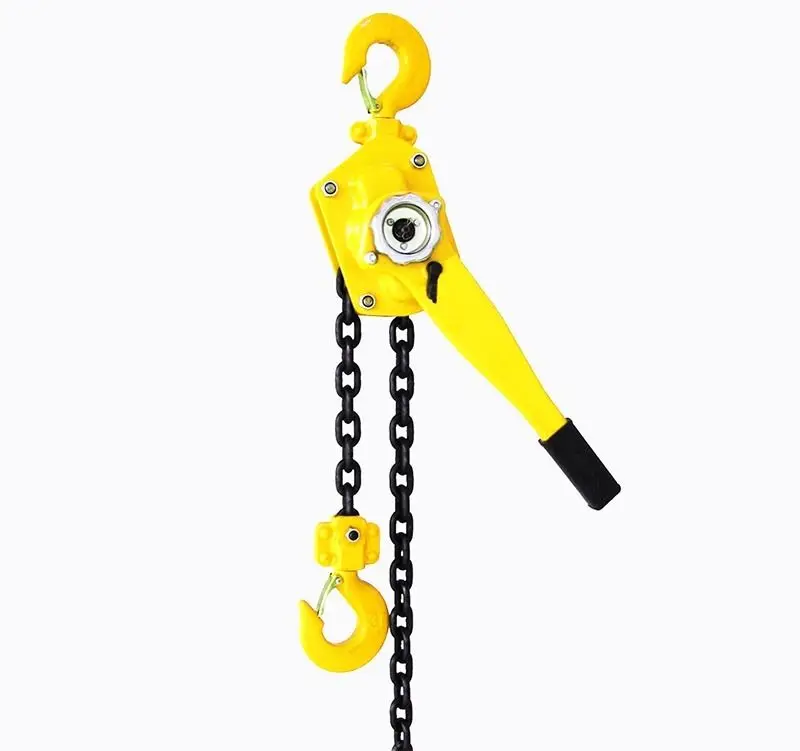sales@tecnotools.com.au
sales@tecnotools.com.au
Call us: 0433 734 100

When it comes to lifting and moving heavy objects, there is no better way than using a hoist. Hoists come in many different shapes and sizes, each with its own unique benefits and drawbacks. So which one is right for the job at hand?
That depends on the type of load you're trying to lift and the distance you need to move it. In this article, we'll take a look at the different types of hoists and when each one is appropriate.
A hoist is a type of crane that is used to lift or move heavy objects. There are several different types of hoists, each of which is appropriate for a specific application.
The cons of not using a hoist include the potential for injury to workers and damage to property. Without a hoist, workers may have to manually lift or move heavy objects, which can lead to injuries such as back injuries or strains. Additionally, without a hoist, it may be difficult or impossible to move heavy objects, which can lead to damage to the object or property.
There are a number of alternative products available to lift and move heavy objects. Some of these include forklifts, pallet jacks, and dollies.
Forklifts are a type of industrial vehicle that is used to lift and move heavy objects. They are typically powered by either gasoline or diesel engines and can be operated by a single person.
Pallet jacks are a type of lifting device that is used to lift and move heavy objects on pallets. They are typically powered by either an electric or hydraulic motor.
Dollies are a type of wheeled platform that is used to move heavy objects. They can be powered by either an electric or manual power source.
When it comes to lifting and moving heavy objects, there are a number of options available. The best option for your specific application will depend on the type of load you're trying to lift and the distance you need to move it. Be sure to consider all of your options before making a decision.
The three most common types of hoists are electric, air-powered, and hand-operated. Each type of hoist has its advantages and disadvantages, which is why it is important to choose the right type for the job.
Electric hoists are the most popular type because they are efficient and easy to use. They can be used for a variety of applications, including lifting heavy objects, moving materials from one location to another, and even assembling structures.

Air-powered hoists are less common than electric hoists, but they offer some advantages over their electric counterparts. Air-powered hoists are typically more powerful, so they can lift heavier objects. They also tend to be more versatile, since they can be used in a variety of settings and for different purposes.

Hand-operated hoists are the least common type of hoist, but they offer some advantages over the other two types. Hand-operated hoists are typically more affordable than electric or air-powered hoists. They are also more portable, so they can be used in a variety of settings.

When choosing a hoist, it is important to consider the specific needs of the project. For example, an electric hoist may be the best choice for lifting heavy objects, but an air-powered hoist may be better suited for moving materials from one location to another. It is also important to consider the budget and the specific features that are important for the project.
Electric hoists are powered by electricity and use a motor to lift or lower a load. They are usually controlled by a switch, which allows the operator to raise or lower the load with ease. Electric hoists can be used for a variety of applications, including lifting heavy objects in a factory or warehouse setting.
There are two main types of electric hoists: chain and wire rope. Chain electric hoists are the most common type, as they are less expensive and easier to maintain than wire rope electric hoists. However, wire rope electric hoists offer a higher lifting capacity and are more durable.
When choosing an electric hoist, it is important to consider the type of load that will be lifted, the lifting speed, and the environment in which the hoist will be used.
There are a few different types of hoists, and each one has its own specific purpose. Here is a rundown of when to use each type:
When using a hoist, it is important to keep the following tips in mind for safe and effective operation:
1. Always use the correct size hoist for the job. Oversized hoists can be dangerous, as they can cause more wear and tear on the equipment, as well as increase the risk of injury.
2. Make sure that the area around the hoist is clear of debris and other hazards. This will help to prevent any accidental trips or falls.
3. Inspect the hoist before each use, and never use a damaged or defective unit.
4. Follow the manufacturer's instructions for safe operation.
5. Be sure to secure the load properly before lifting, using the appropriate number and size of slings or other rigging devices.
6. Never exceed the hoist's rated capacity.
7. Operate the hoist slowly and smoothly to avoid jerking the load.
8. Keep your hands and fingers clear of all moving parts.
9. Never leave a hoist unattended while it is in use.
10. When finished, lower the load gently to the ground and disengage all rigging before disconnecting the power source.
TecnoTools has a comprehensive range of electrical hoists for sale in Australia. We ship countrywide and we keep stock in all major capitals in the country. We only supply electrical hoist thought. We have found this type of hoist offer its user the best cost-benefit in the market.